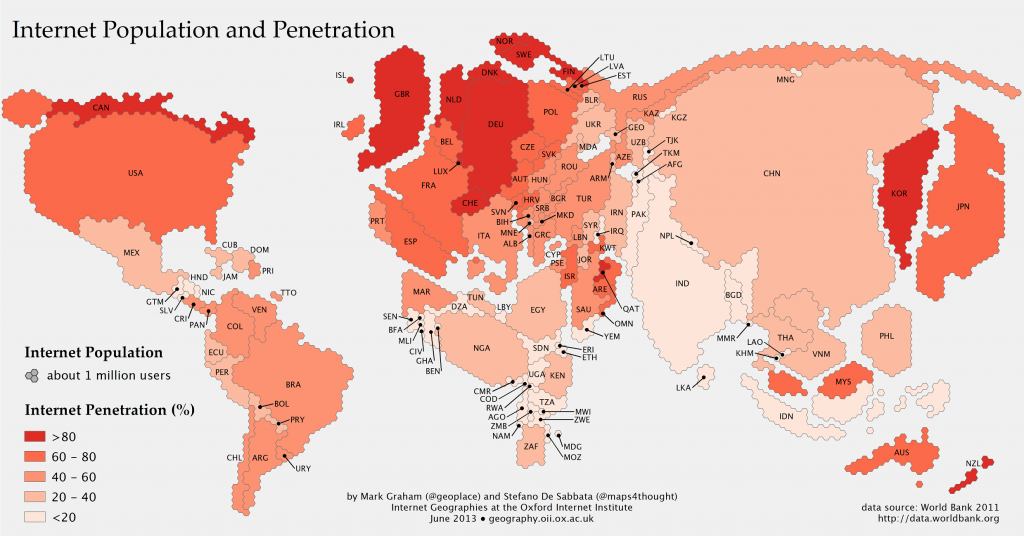Continuing on my blogs about China and the internet I wanted to share this map illustrating what percentage of the population uses the internet in each country around the world. The study was carried out by the Oxford Internet Institute using data on a country’s internet users and population from the World Bank. Countries like Great Britain, Canada, Germany, Norway, Sweden, Finland and Korea all boast internet penetration above 80%. The United States, which has a considerably larger population than those countries, lies somewhere between 60% and 80% internet penetration.
Then we get to China, which has a total internet penetration between 20% and 40%. This is not surprising as China is still developing and has a large rural population that still live off the land. I think it is important to note that China is doing better than its neighbor India, another heavily populated developing country. In my last blog post I wrote about light bulbs developed in Shanghai that provide wireless internet through light waves. Advancements like this could help China gain larger internet penetration and become an incredibly large portion of internet users. I think it should also be noted that while China’s internet penetration is only somewhere between 20% and 40% that still means it has the largest internet population.
It will be interesting to see how the Chinese government plans to increase internet access. I would assume that as they continue to develop cities and push for people to leave villages for the cities that they come up with creative ways to increase their internet penetration.
Source:
http://gizmodo.com/heres-a-world-map-adjusted-for-each-countrys-internet-1443568309

The recent urbanization efforts by the Chinese government should cause the percentage of total internet penetration to increase over the next decade or so. As more and more people move into the major cities, the role of the internet will become larger in larger in businesses and in every day life. However, it will be interesting to see how the government decides to monitor the internet penetration, in terms of blocking certain sites or what privileges they grant their regular citizens. The internet is a massive medium for communication and transparency, so the response of the Chinese government will be interesting to follow.
This ties into Olivia’s presentation today on Google in China. As she discussed, Baidu holds over 80% of the market for search engine use in China. But, Baidu has not yet expanded into cell phones, which is apparently the means through which most Chinese actually browse the web. I bet if Baidu decides to move in that direction, the percentage of internet users will receive a boost.
The admittedly small number Chinese college students that I spoke to about the internet in China all said that they preferred to use Google when it was available for use in China. That could just be because of their previous experience with the search engine while studying abroad, or their proclivity for the foreign. Also notable about internet in China is the widespread use of software to get around the government restrictions. Software is available that allows internet users in China to access unrestricted internet and use sites like Facebook, Youtube, and Google.